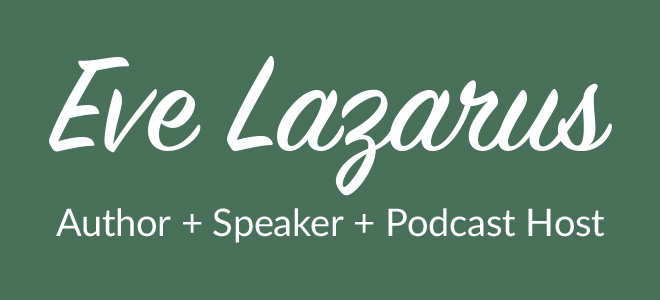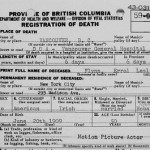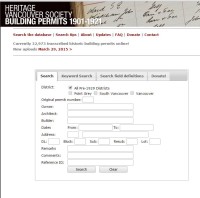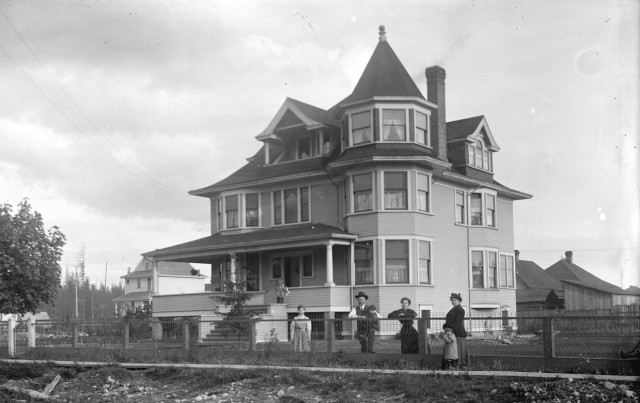
In some ways, researching your home is like an archeological dig. But with a bit of patience you can find out who built your home, who lived there before you, who was murdered there, who died of a comfortable old age, perhaps, even, who’s haunting it now.
1. City Directories:
I always start with the city directories, and now thanks to the Vancouver Public Library, all of B.C. is online up from 1860 to 1955. After 1955 you can find actual copies at the Vancouver Archives, at the North Vancouver Museum and Archives in Lynn Valley or on microfilm at the VPL. The directories will tell you the name of past residents, owners as well as their occupation. The directories also give information about the population of the time, the business climate and advertisements for businesses—it’s a bit like a tourist brochure.
2. Census: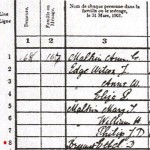
Once you’ve discovered the people who lived in your house you can find out all sorts of great information through the census records. If nothing else it will give you a whole new appreciation why you slog through the forms every five years.
3. Ownership Title:
If you’re flush with cash you can always visit the Land Titles Office in New Westminster. If you provide them with a legal description (District, Block, Lot), and payment, they will provide you with details on ownership history
4. Vital Events Records:
It gets better every year with birth, marriage and death certificates online. More often than not, you can even find copies of the actual death certificates. This death certificate, for example, tells you that Errol Flynn died in Vancouver in 1959, that he’d been here six days, that he lived in New York City, was a motion picture actor from Tasmania and that he was married to Patrice Wymore (and that’s just the top half)
5. Heritage Registers:
If your house has historical merit (and this includes mid-century homes) it may be listed on a Heritage Register. Most municipalities have them and they are almost all online now. Your local city hall will also have a file on your house, and don’t forget to check your local archives.
6. The Vancouver Building Register:
It’s worth checking to see if your house is on the Vancouver Building Register. This register lists tons of information and sources for residential and commercial buildings in Vancouver.
7. Building Permits
Heritage Vancouver took on the herculean task of transcribing the original handwritten registers from Vancouver Archives. As of the end of March 2015 they had just under 33,000 pre-1922 building permits online in a searchable database. Heritage Vancouver also says that if you dig through the water permits at Vancouver Archives you’ll find additional clues to your house’s completion date.
8. Heritage House Tours:
It’s worth a shot, if your house is old enough it may be on one of these tours. New Westminster has run an annual tour for the past 35 years. The Vancouver Heritage Foundation for the past 12 Vancouver Heritage Foundation. and if you’re in Victoria you’re really lucky because the Victoria Heritage Foundation has put out a comprehensive set of four books.
9. Google:
Sometimes the obvious is best. Simply google your address and see if anything interesting pops up. Often past sales will give you pictures and information on the owners.
10. Newspaper databases:
Taking Google one step further, most newspapers are accessible online through your public library. All you need is your library card. For archival newspapers, the British Colonist is online from 1858-1920.
For more information on researching your home’s history see At Home with History: the secrets of Vancouver’s heritage houses
© All rights reserved. Unless otherwise indicated, all blog content copyright Eve Lazarus.
